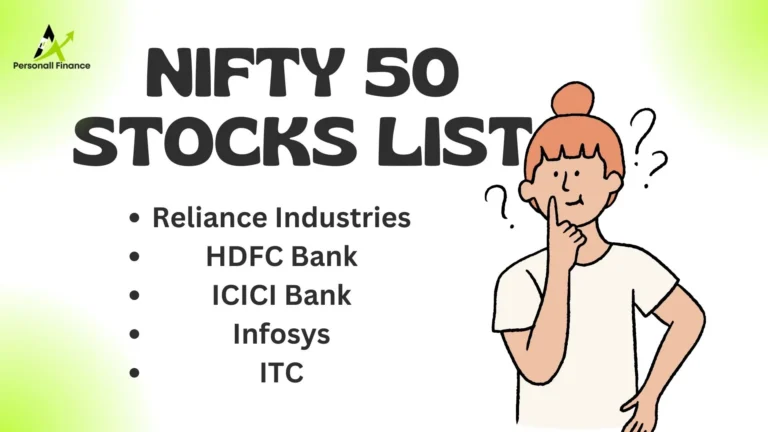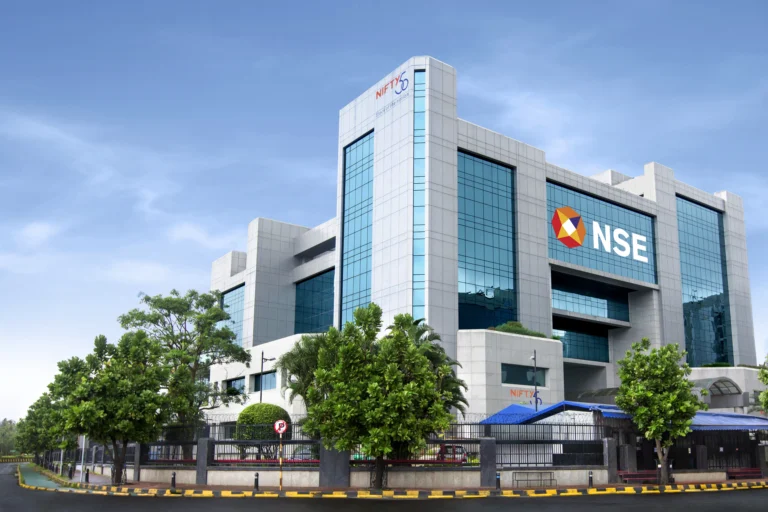Introduction
The Bombay Stock Exchange, also known as the BSE, is a significant component of India’s financial system. As the oldest stock exchange in Asia, it has a significant influence on the nation’s economy and offers opportunities for investors to invest in India’s colorful business ecosystem.

Table of Contents
ToggleWhat is BSE?
The Bombay Stock Exchange, commonly known as the BSE, is an important institution in India’s financial landscape. Serving as the oldest stock exchange across Asia, BSE works as a dynamic marketplace where various securities, including stocks, bonds, and derivatives, are bought and sold. This platform not only allows investment opportunities for individuals but also enables companies to raise capital by issuing shares to the public, fostering economic growth and wealth creation within the country. Working as an electronic platform, BSE connects buyers and sellers through brokers who execute transactions on their behalf, while its regulated framework ensures fairness, transparency, and investor protection throughout the trading process.
How BSE works?
Functioning as an electronic trading platform, BSE operates by allowing transactions between buyers and sellers through intermediary brokers. These brokers perform orders on behalf of investors, ensuring the smooth exchange of securities such as stocks, bonds, and derivatives. Supported by transparency and regulatory oversight, BSE’s simplified system ensures fair and secure transactions, improving investor confidence and market integrity.
History of BSE?
1. Founding Roots: BSE was established in 1875 under a banyan tree, marking its humble origins as a stockbroker’s association.
2. Rapid Evolution: Over time, it transformed into a formal stock exchange, reflecting India’s growing financial landscape.
3. Historical Milestone: BSE introduced electronic trading in 1995, revolutionizing trading practices in the country.
4. Global Recognition: It gained prominence as Asia’s oldest stock exchange and played a significant role in India’s financial market globalization.
5.Sensex Inception: The benchmark index, Sensex, was launched in 1986 and became an indicator of market trends.
6. Resilience Through Crisis: BSE survived various financial crises, showcasing its stability and adaptability.
7. Listing and Regulatory Advances: The exchange expanded its offerings and regulations, attracting companies and investors.
8. Global Partnership: Collaborations with international exchanges expanded BSE’s reach and expertise.
9. Modern Icon: BSE is an important institution, embodying India’s financial evolution and economic progress.
Importance OF Bombay Stock Exchange (BSE) in Indian economy?
The Bombay Stock Exchange (BSE) plays an important role in driving India’s economic path. Beyond being just a trading platform, its significance ripples through various aspects of the economy:
1. Capital Formation: BSE provides a way for companies to raise capital by issuing shares to the public. This infusion of funds fuels the expansion of businesses, new projects, and technological advancements, boosting economic growth and job creation.
2. Investor Participation: BSE simplifies wealth creation by enabling individuals to invest in the nation’s top companies. This expands the base of investors, promotes financial literacy, and fosters a culture of investment, thereby contributing to a more financially inclusive society.
3. Foreign Investment: The presence of a strong stock exchange instills confidence in foreign investors. BSE’s transparent and regulated environment attracts foreign institutional investors, supporting India’s foreign exchange reserves and building economic stability.
4. Benchmark for Corporate Performance: BSE indices, like the Sensex, act as indicators for tracking the overall health of the economy. The rise or fall of these indices reflects market sentiment and provides insights into corporate performance, influencing strategic decisions across industries.
5. Wealth Generation: As companies grow and their market value grows, shareholders get the rewards in the form of capital appreciation and dividends. This accumulation of wealth bolsters individual and institutional financial stability, fostering a cycle of investment and consumption.
6. Innovation and job creation: The capital injection helped by BSE not only aids established companies but also nurtures startups and innovative businesses. This, in turn, promotes job creation, promotes entrepreneurship, and fuels the engine of economic progress.
7. Government Finances: BSE also plays a role in government financing through avenues like initial public offerings (IPOs) of state-owned enterprises. This assists in raising funds for public projects and reducing fiscal deficits.
8. Economic Indicator: BSE’s performance often reflects broader economic trends. A thriving market could indicate positive economic trends, while a downturn might signal challenges. Policymakers use such insights to fine-tune economic strategies.
In basic terms, the Bombay Stock Exchange serves as a dynamic bridge between businesses and investors, channeling capital, spurring innovation, and shaping economic direction. Its vibrancy resonates beyond trading screens, touching the lives of individuals, corporations, and the nation as a whole.
Major indices of the Bombay Stock Exchange (BSE)?
The Bombay Stock Exchange( BSE) features a range of significant indicators that track colorful parts of the Indian stock market. These indicators are designed to reflect the performance of specific orders of stocks. This is a list of some of the major BSE indicators.
1. Sensex( S&P BSE Sensex): The Sensex is the flagship indicator of the BSE and reflects the performance of 30 of the largest and most actively traded companies on the exchange. It covers a different range of sectors and is frequently considered a standard for the overall request sentiment.
2. BSE 100 Index: This indicator tracks the performance of the top 100 companies listed on the BSE in terms of request capitalization. It provides a broader view of the request compared to the Sensex.
3. BSE 200 Index: Covering a wider range, the BSE 200 Index includes the top 200 companies listed on the BSE. It offers insights into a broader segment of the market’s performance.
4. BSE 500 Index: As a broader benchmark, the BSE 500 Index reflects the performance of the top 500 companies listed on the BSE. It provides a comprehensive view of the overall market trends.
5. BSE Midcap Index: This index focuses on the performance of mid-sized companies listed on the BSE. It gives investors an idea of how relatively smaller companies perform in the market.
6. BSE Smallcap Index: Representing smaller companies listed on the BSE, the Smallcap Index offers insights into the performance of companies with lower market capitalizations.
7. BSE Sectoral Indices: These indices keep tabs on particular industries, like banking, IT, healthcare, and more. They aid investors in evaluating the performance of particular market industries.
8. BSE IPO Index: This index keeps track of the performance of businesses that recently raised capital through initial public offerings (IPOs), giving information on how well newly listed businesses are doing.
For investors, analysts, and market players, these key BSE indexes are crucial resources for understanding the performance and trends of various Indian stock market categories. They provide insightful information about the state of numerous industries and the mood of the market as a whole.
Method of investment through Bombay Stock Exchange (BSE)?
The Bombay Stock Exchange (BSE) offers a range of investment options for individuals looking to participate in the financial markets. Here are some of the key investment options provided through BSE
1. Equity Shares: The BSE provides a platform for buying and selling equity shares of companies listed on the exchange. Investors can become part owners of these companies by purchasing their shares, which may appreciate in value over time.
2. Bonds and Debentures: Investors can also invest in bonds and debentures issued by governments, corporations, and financial institutions. These fixed-income securities offer regular interest payments and can be traded on the exchange.
3. Mutual Funds: BSE offers a range of mutual funds that pool money from multiple investors to invest in a diversified portfolio of stocks, bonds, or other assets. Mutual funds are managed by professional fund managers and provide an easy way for investors to diversify their holdings.
4. Exchange-Traded Funds (ETFs): ETFs are investment funds that trade on stock exchanges like individual stocks. They aim to replicate the performance of a specific index, sector, or asset class. BSE lists various ETFs that provide exposure to different market segments.
5. Government securities: like Treasury bills and government bonds, can be traded on the BSE’s trading platform. Investors looking for steady profits frequently choose these assets since they are regarded as safe investments.
6. Initial Public Offerings (IPO): BSE supports the trading of shares when businesses want to go public and offer their stock to the general public for the first time In order to purchase shares of newly listed firms, investors can take part in IPO.
7. Corporate Bonds: Trading in corporate bonds issued by businesses is allowed by the BSE. In return for regular interest payments and the ultimate repayment of the initial amount, investors might lend money to businesses.
8. Real Estate Investment Trusts (REITs) and Infrastructure Investment Trusts (InvITs): BSE also lists REITs and InvITs, which provide an avenue for investors to invest in real estate and infrastructure projects, respectively.
9. Commodity Derivatives: BSE offers commodity derivatives contracts, allowing investors to trade in commodities like gold, silver, and agricultural products through futures and options contracts.
10. Follow-On Public Offering (FPO): It offers investors an opportunity to buy additional shares of a publicly traded company.
These investment options respond to a diverse range of risk appetites, investment goals, and time horizons. Before investing, it’s important for individuals to conduct thorough research, understand their risk tolerance, and consider seeking advice from financial experts.
Conclusion
The Bombay Stock Exchange is not just a trading platform; it’s a symbol of India’s economic progress. Its evolution, functions, and contributions to the nation’s growth make it an integral part of India’s financial ecosystem, impacting businesses and investors alike. As we move forward, BSE’s legacy continues, shaping India’s financial future.
Frequently asked question
The BSE is one of the oldest stock exchanges in Asia, based in Mumbai, India. It facilitates trading in various financial instruments, including stocks, bonds, and derivatives.
The BSE was founded in 1875 as “The Native Share & Stock Brokers’ Association.
Yes, foreign investors, including foreign institutional investors (FIIs) and qualified foreign investors (QFIs), are allowed to invest in Indian stocks listed on the BSE, subject to certain regulations.
The Sensex, short for the Sensitive Index, is a benchmark stock market index of the BSE. It comprises 30 of the largest and most actively traded stocks on the exchange, representing various sectors of the Indian economy.



